D
deleted1111261
Many, many people on this board have mentioned this book.
I’m a fiction reader, but knew I had to get to this book.
It, perhaps imperfectly, but pretty damn accurately, explains what the f*ck has happened to our specialty.
Thank you for bringing his work to my attention. I plan on finishing “Incerto” by summer’s end.
I’m a fiction reader, but knew I had to get to this book.
It, perhaps imperfectly, but pretty damn accurately, explains what the f*ck has happened to our specialty.
Thank you for bringing his work to my attention. I plan on finishing “Incerto” by summer’s end.
Attachments
-
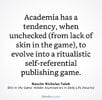 95399F81-C61C-4E4D-A516-A981583AD678.jpeg103.7 KB · Views: 152
95399F81-C61C-4E4D-A516-A981583AD678.jpeg103.7 KB · Views: 152 -
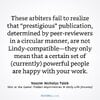 E928CADD-57F6-4455-9CBA-51B2B3B7301A.jpeg132.3 KB · Views: 143
E928CADD-57F6-4455-9CBA-51B2B3B7301A.jpeg132.3 KB · Views: 143 -
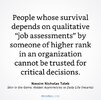 F1D5BE10-99FC-422B-9899-50061AD81BC3.jpeg111.6 KB · Views: 139
F1D5BE10-99FC-422B-9899-50061AD81BC3.jpeg111.6 KB · Views: 139 -
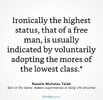 5E900007-71F1-4D70-B135-584C4C0B90FE.jpeg101.7 KB · Views: 131
5E900007-71F1-4D70-B135-584C4C0B90FE.jpeg101.7 KB · Views: 131 -
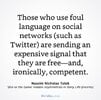 3418B571-8849-4935-A2EB-30413656ADC5.jpeg108.4 KB · Views: 138
3418B571-8849-4935-A2EB-30413656ADC5.jpeg108.4 KB · Views: 138 -
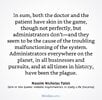 1C07CC62-FF5F-4550-95F5-840D838EE57E.jpeg132.8 KB · Views: 153
1C07CC62-FF5F-4550-95F5-840D838EE57E.jpeg132.8 KB · Views: 153 -
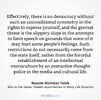 81B27734-23C7-47B7-A9BC-117EBCB2AEF3.jpeg162.5 KB · Views: 150
81B27734-23C7-47B7-A9BC-117EBCB2AEF3.jpeg162.5 KB · Views: 150
Last edited by a moderator:
